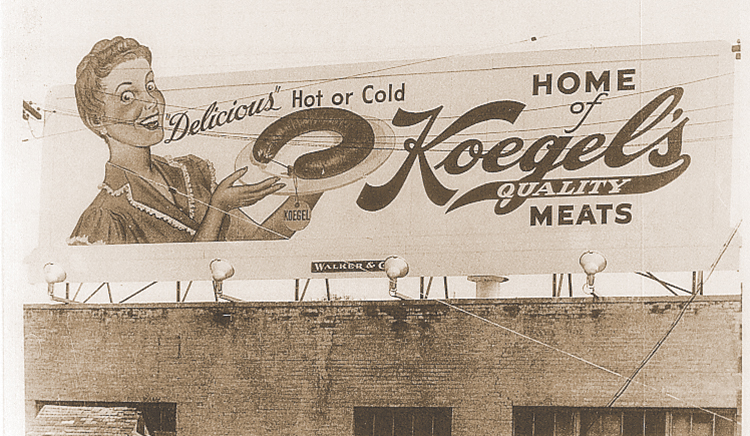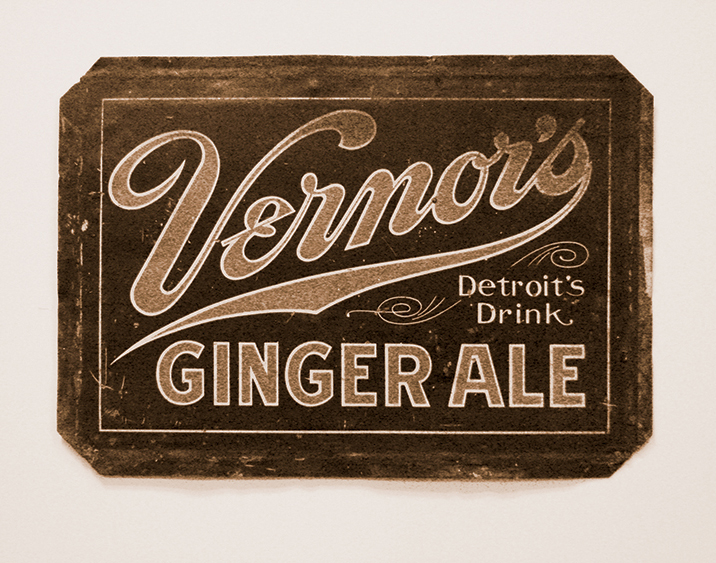Home > Michigan > Michigan Farm to Table > How Michigan Agribusinesses Have Stayed Successful For More Than 100 Years
How Michigan Agribusinesses Have Stayed Successful For More Than 100 Years
In partnership with: Michigan Department of Agriculture & Rural Development

The history of food and agriculture in Michigan parallels that of the state. At the turn of the 20th century, Michigan was experiencing an urbanization spurred by the automobile industry and migration.
Agriculture, too, was transformed by the Industrial Revolution. M![Michigan Agriculture 2017 [INFOGRAPHIC]](https://eadn-wc01-4177395.nxedge.io/wp-content/uploads/2020/05/Screen-Shot-2017-02-23-at-8.54.55-AM-320x106.jpg) echanization and innovations in communication and transportation gave rise to agri-businesses such as the Michigan Sugar Co. in Bay City and family-owned Koegel Meats Inc. in Flint.
echanization and innovations in communication and transportation gave rise to agri-businesses such as the Michigan Sugar Co. in Bay City and family-owned Koegel Meats Inc. in Flint.
A Flint Family Tradition
Koegel Meats turned 100 years old in 2016. German immigrant Albert Koegel, who established Koegel Meats in 1916, brought recipes and processes he learned in his home country to the U.S. and opened a small retail market in Flint.
As Flint’s population boomed, the company also grew. In the mid-1930s, Koegel built a processing plant, which was eventually replaced by an even larger facility in 1972.![Michigan Agriculture 2017 [INFOGRAPHIC]](https://eadn-wc01-4177395.nxedge.io/wp-content/uploads/2020/05/Screen-Shot-2017-02-23-at-8.54.38-AM-320x197.jpg)
Koegel hot dogs became a staple in Michigan homes through the years, and today, the business produces some 35 meat products, including its signature frankfurters, Polish sausage and lunch meats. The products are sold in supermarkets and restaurants in five states across the Midwest.
John Koegel, Albert’s grandson and current company president, says one reason for the company’s endurance is a commitment to upholding the same quality standards his grandfather established.
“The factors that have led to our longevity and success are staying with the same recipes, as well as keeping many of the same processes my grandfather developed or used when he started the company 100 years ago,” he says. “Our future will be in continuing to make the same products we have, along with increasing our market share in some of the areas in Michigan where we are not as well-known.”

Detroit’s Soda Success
Vernors Ginger Ale is another longtime brand synonymous with Michigan agri-business. One of the country’s oldest soft drinks, Vernors dates back to 1866 when Detroit pharmacist James Vernor began experimenting with a new formula for ginger ale.
![Michigan Agriculture 2017 [INFOGRAPHIC]](https://eadn-wc01-4177395.nxedge.io/wp-content/uploads/2020/05/Screen-Shot-2017-02-23-at-8.55.19-AM-197x320.jpg) “When James Vernor was young, he worked in a drugstore, and all drugstores had soda fountains. He was messing around with the formula for ginger ale and could never get it quite right, and then the Civil War began,” explains Keith Wunderlich, avid Vernors collector. “He enlisted in the Civil War and was gone for four years. When he returned, he opened up his own drugstore, complete with a soda fountain, went and got his little keg of ginger ale extract, and all of a sudden it was perfect. So that four years of aging had made it the ginger ale that he had dreamed about.”
“When James Vernor was young, he worked in a drugstore, and all drugstores had soda fountains. He was messing around with the formula for ginger ale and could never get it quite right, and then the Civil War began,” explains Keith Wunderlich, avid Vernors collector. “He enlisted in the Civil War and was gone for four years. When he returned, he opened up his own drugstore, complete with a soda fountain, went and got his little keg of ginger ale extract, and all of a sudden it was perfect. So that four years of aging had made it the ginger ale that he had dreamed about.”
Vernors soon became the ginger ale of choice in all of Michigan and remained so, even after the company was sold to Dr Pepper. Wunderlich says regional loyalty is one reason the brand has been so successful.
“Michigan loves its homegrown products, and, as a result, Vernors has a very loyal following. Vernors is part of people’s family history. Whether people cooked with it, took it to picnics or remember stopping at the Vernors soda fountain before hopping on the Boblo [passenger steamboat], everyone in Michigan has a Vernors story,” he says.
Helping Agriculture Grow
As agri-businesses grew in and around Michigan’s urban centers, the state’s rural agriculture industry also experienced a surge with the invention of the tractor, innovations in cultivation processes and greater access to capital.
In 1916, President Woodrow Wilson signed the Federal Farm Loan Act into law, creating the Federal Land Bank System, known today as the Farm Credit System. For the last 100 years, Michigan’s GreenStone Farm Credit Services has provided a consistent, reliable and competitive portfolio of credit and financial services to rural communities and agriculture.
“GreenStone is here to serve Michigan agriculture with a dedicated source of financing, day in and day out,” says Dave Armstrong, president and CEO of GreenStone Farm Credit Services. “Rural communities in Michigan depend on GreenStone’s funding and expertise to produce the high-quality agricultural products enjoyed around the globe. We have successfully fulfilled our mission for the last century, and moving forward we are focused on what the next 100 years will bring.”
![Michigan Agriculture 2017 [INFOGRAPHIC]](https://eadn-wc01-4177395.nxedge.io/wp-content/uploads/2020/05/Screen-Shot-2017-02-23-at-8.55.02-AM.jpg)




![Michigan Agriculture 2017 [INFOGRAPHIC]](https://eadn-wc01-4177395.nxedge.io/wp-content/uploads/2020/05/Screen-Shot-2017-02-23-at-8.54.07-AM.jpg)